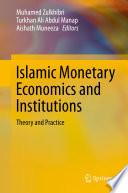
Financial Numeracy in Mathematics Education
Research and Practice
This book presents the important role of mathematics in the teaching of financial education. Through a conceptualization of financial numeracy as a social practice, it focuses on the teaching practices, resources, and needs of secondary mathematics teachers (grades 7-12) to incorporate financial concepts in their classes. The editors and authors bring forth a novel perspective regarding mathematics education in the digital era. By focusing on financial numeracy, a key component of skills required in the digital era, they discuss important issues related to the teaching and learning of mathematics and finance. In contrary to most research in the field of financial education coming from scholars in areas such as business, accounting, management and economics, this book introduces the contribution of researchers from the field of education to the debate. The book appeals to an international audience composed of researchers, stakeholders, policymakers, teachers, and teacher educators.
- ISBN 13 : 3030735885
- ISBN 10 : 9783030735883
- Judul : Financial Numeracy in Mathematics Education
- Sub Judul : Research and Practice
- Pengarang : Annie Savard, Alexandre Cavalcante,
- Kategori : Education
- Penerbit : Springer Nature
- Bahasa : en
- Tahun : 2021
- Halaman : 108
- Google Book : https://play.google.com/store/books/details?id=-tw_EAAAQBAJ&source=gbs_api
-
Ketersediaan :
008053 Tersedia di Library of UI BBC
The book appeals to an international audience composed of researchers, stakeholders, policymakers, teachers, and teacher educators. This book presents the important role of mathematics in the teaching of financial education.









